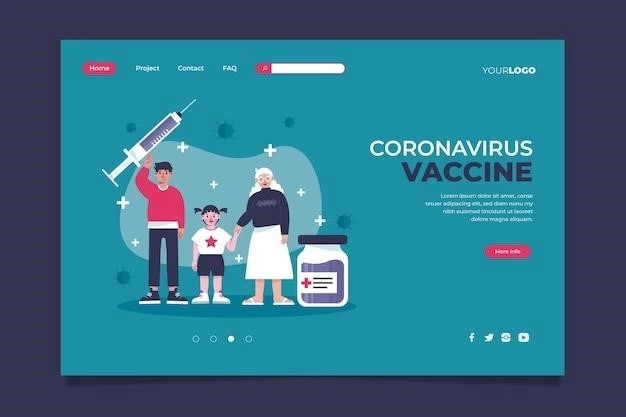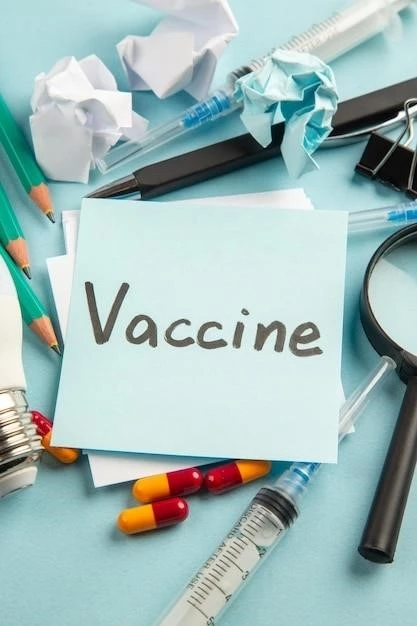Overview of Vaccinophobia
The term Vaccinophobia refers to the fear or anxiety towards vaccination‚ which has been a subject of controversy and debate in the 21st century. Understanding the origins and implications of this phobia is essential in addressing vaccine hesitancy.
Definition and Explanation of Vaccinophobia
Vaccinophobia is a term used to describe the fear or anxiety surrounding vaccinations‚ particularly prevalent in the 21st century due to various controversies and misinformation. This fear can lead to vaccine hesitancy‚ impacting public health efforts to control infectious diseases. Understanding the origins and manifestations of this fear is crucial in addressing vaccination challenges and promoting immunization campaigns globally.
Historical Context of Vaccinophobia
The roots of Vaccinophobia can be traced back to the 18th century with the introduction of the smallpox vaccine. Over time‚ vaccine hesitancy has evolved due to various controversies and misinformation‚ leading to public distrust in vaccinations. Understanding the historical development of this fear is crucial in addressing current challenges and promoting vaccine acceptance.

Impact of Vaccinophobia on Public Health
The ramifications of Vaccinophobia on public health are significant‚ leading to vaccine hesitancy and potentially hindering disease control efforts. Addressing this fear is crucial in ensuring community immunity and preventing the resurgence of vaccine-preventable diseases.
Relationship Between Vaccinophobia and Vaccine Hesitancy
Vaccinophobia contributes significantly to vaccine hesitancy‚ where individuals exhibit reluctance or refusal to vaccinate. This phenomenon poses challenges to public health by potentially compromising immunization efforts and overall community health outcomes. Addressing the root causes of vaccinophobia is essential to mitigate its impact on vaccine acceptance rates.
Consequences of Vaccinophobia on Community Immunity
Vaccinophobia can lead to decreased vaccine uptake‚ weakening community immunity and increasing the risk of disease outbreaks. The reluctance to vaccinate can result in pockets of susceptible individuals‚ enhancing the spread of infectious diseases and posing a threat to public health efforts. Addressing and dispelling vaccinophobia are essential to safeguarding the health of communities worldwide.
Psychological Factors Associated with Vaccinophobia
The fear and anxiety linked to Vaccinophobia can have psychological impacts‚ influencing individuals’ decisions about vaccination. Understanding these factors is crucial in addressing vaccine hesitancy and promoting public health immunization efforts.
Fear and Anxiety Related to Vaccination
Vaccinophobia is often driven by fear and anxiety surrounding vaccination‚ leading individuals to question the safety and necessity of vaccines. These emotions can stem from various sources‚ including misinformation‚ previous negative experiences‚ or concerns about potential side effects. Addressing and alleviating these fears is essential to promote informed decision-making and improve vaccination acceptance rates.
Obsessive-Compulsive Disorder (OCD) and Vaccination
Individuals with obsessive-compulsive disorder (OCD) may exhibit heightened anxiety and concerns regarding vaccination due to intrusive thoughts and compulsive behaviors. This psychological condition can exacerbate fears related to vaccines‚ leading to challenges in decision-making and acceptance of immunization. Understanding and addressing the intersection of OCD and vaccination reluctance is crucial in promoting public health initiatives.
Addressing Vaccinophobia
Developing effective strategies to combat Vaccinophobia is crucial in promoting vaccine acceptance and dispelling fears associated with vaccination. Clear communication and education play a vital role in addressing misconceptions and building trust in immunization programs.
Strategies to Combat Vaccinophobia
Effective strategies to combat Vaccinophobia include promoting accurate information‚ engaging with communities to address concerns‚ ensuring transparency in vaccine development and safety‚ and fostering trust in healthcare systems. By implementing targeted educational campaigns and fostering open dialogues‚ public health authorities can counter misinformation and improve vaccination acceptance rates.
Importance of Effective Communication in Addressing Vaccinophobia
Clear and effective communication plays a crucial role in combating Vaccinophobia by providing accurate information‚ addressing concerns‚ and building trust with the public. Transparent and empathetic communication can help dispel myths and misconceptions‚ promoting vaccine acceptance and public health outcomes.
Role of Healthcare Professionals in Dealing with Vaccinophobia
Healthcare professionals play a vital role in addressing Vaccinophobia by educating patients and the public about the importance of vaccines‚ dispelling myths‚ and building trust in vaccination programs. Their expertise and guidance are instrumental in promoting vaccine acceptance and ensuring public health protection.
Educating Patients and the Public about Vaccines
Healthcare professionals play a critical role in addressing Vaccinophobia by providing accurate information‚ dispelling myths‚ and fostering trust in vaccination. Educating patients and the public on the importance of vaccines‚ their safety‚ and efficacy is essential in promoting immunization uptake and combating fears associated with vaccination.
Building Trust and Confidence in Vaccination Programs
Establishing trust and confidence in vaccination programs is essential to combat Vaccinophobia. Healthcare professionals must engage with communities‚ address concerns transparently‚ and provide evidence-based information to enhance public confidence in vaccination. Building strong relationships with patients and fostering trust in healthcare systems are key components in promoting vaccine uptake and strengthening public health initiatives.

Societal Influences on Vaccinophobia
Societal factors such as social‚ cultural‚ and political influences play a significant role in shaping attitudes towards vaccination and Vaccinophobia. Understanding these influences is crucial in addressing misconceptions‚ strengthening immunization programs‚ and promoting public health initiatives.
Social‚ Cultural‚ and Political Factors Impacting Vaccinophobia
Vaccinophobia is influenced by a complex interplay of social‚ cultural‚ and political factors that shape individuals’ perceptions and beliefs about vaccination. Societal norms‚ cultural practices‚ and political ideologies can either reinforce or challenge fears related to vaccines‚ impacting public health initiatives and immunization rates.
Media’s Role in Shaping Perceptions of Vaccines and Vaccinophobia
The media plays a critical role in influencing perceptions of vaccines and Vaccinophobia by disseminating information that can either support or challenge vaccination efforts. Sensationalized stories‚ misinformation‚ and celebrity endorsements can impact public perception and contribute to vaccine hesitancy. By promoting accurate and evidence-based reporting‚ the media can help mitigate fears and build confidence in vaccination programs.
Global Perspectives on Vaccinophobia
Vaccinophobia manifests differently across countries due to varying societal‚ cultural‚ and political influences on vaccine perceptions. Understanding these global variations is crucial for developing targeted interventions and overcoming barriers to immunization.
Variations in Vaccinophobia Across Different Countries
Vaccinophobia presents with varying degrees across nations due to unique societal‚ cultural‚ and political influences shaping perceptions of vaccination. Understanding these global variations is essential for tailoring interventions to address vaccine hesitancy effectively and promote immunization adherence worldwide.
International Efforts to Address Vaccinophobia
Addressing Vaccinophobia on a global scale requires collaborative efforts to counter misinformation‚ enhance vaccine literacy‚ and build public trust in immunization programs. International initiatives aim to address cultural nuances‚ dispel myths‚ and promote evidence-based vaccination practices to improve global health outcomes.
Research Studies on Vaccinophobia
Research studies on Vaccinophobia delve into the fear of vaccination and its implications‚ exploring psychological‚ societal‚ and cultural factors influencing vaccine acceptance. These studies provide valuable insights into addressing vaccine hesitancy and promoting immunization worldwide.
Findings on Fear and Economic Anxiety Related to Vaccination
Recent research explores the impact of fear and economic anxiety on COVID-19 vaccination. Studies show an increase in fear and anxiety levels post-vaccine availability‚ affecting global vaccination trends and public health efforts.
Associations Between COVID-19-Related Anxiety and Vaccine Acceptance
Recent studies have explored the associations between COVID-19-related anxiety and vaccine acceptance. Findings suggest that anxiety levels impact individuals’ willingness to accept COVID-19 vaccination‚ emphasizing the need to address psychological factors to improve vaccine uptake rates.
